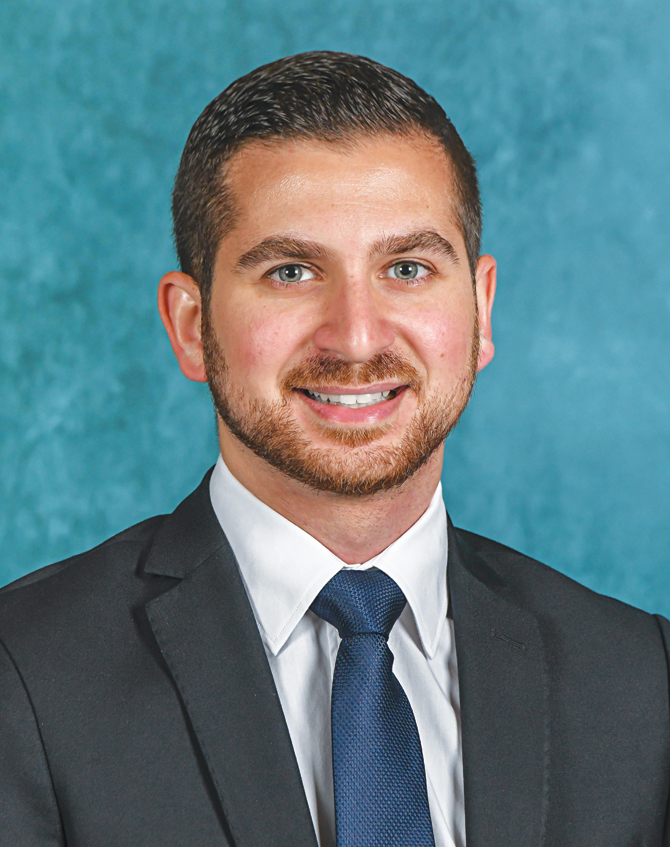CHICAGO: Adding vitamin D to diets can help cancer patients live longer, according to a study by a Lebanese doctor in the US.
The number of people in the Middle East with cancer is expected to double by the year 2030, with cancer of the breast, colon and lungs as the primary causes.
In the US, cancer is the second most leading cause of death.
But Dr. Tarek Haykal, 27, who is completing his residency in internal medicine at the Hurley Medical Center at Michigan State University in Flint, has released a study suggesting vitamin D carries some cancer benefit, not just for people in the Middle East but throughout the world.
Dr. Haykal and his team conducted a meta-analysis study involving 79,000 patients. The findings suggest that a steady supplement of vitamin D for at least three years can help cancer patients live longer.

Dr. Tarek Haykal’s study points to a prolonged life for patients. (Supplied photo)
This works out to almost a 13 percent drop in cancer patient mortality.
The study was presented at the annual conference of the American Society of Clinical Oncology in Chicago recently.
"Vitamin D had a significant effect on lowering the risk of death among those with cancer, but unfortunately the study didn’t show any proof that it could protect against getting cancer," said Dr. Haykal, who is a lead author of the study.
The other doctors in the research team were Varun Samji, Yazan Zayed, Inderdeep Gakhal, Vijay Veerapaneni, Michele Obeid, Babikir Kheiri, Sunil Badami, Ghassan Bachuwa and Rizwan Danish.
"The point we tried to get at is to see if vitamin D had any benefit for cancer patients, mainly in primary prevention," said Dr Haykal.
"When we say primary prevention, we are talking about normal healthy individuals in the community, whether taking vitamin D really affects their cancer outcomes."
Three years of vitamin D supplements "were enough," he said.
"Mainly the benefit was in cancer-related mortality. So we tried to say there is a decrease in possible cancer deaths among patients taking vitamin D versus others.
"Does it mean that we should go around telling people to take vitamin D? Yes. We do need more awareness and we do encourage people to take vitamin D."
Vitamin D supplements have been studied as a primary prevention for illnesses including cardiovascular disease, osteoporosis, diabetes mellitus and cancer, Dr Haykal said.
Now it is being taken more seriously in addressing cancer.
"Global attention has never been on vitamin D, but now we are learning more and more that vitamin D is important to the health of your bones, and to your health in general," he said.
"We have more evidence that vitamin D has a lot of benefits, and we encourage patients and people in general to ensure they maintain good vitamin D levels."
Vitamin D — "the sunshine vitamin" — is derived mainly from exposure to sunlight, but also comes from diets that include fish, mushrooms and egg yolk.

Cancer is the second most common cause of death in the US after heart disease. Recent studies suggest vitamin D supplements can extend patients’ lives. (Shutterstock)
But even with this diet and exposure to sunshine, deficiencies still occur, he said.
Haykal, who was born in Lebanon and trained in medicine at the Lebanese University in Beirut, began his three-year residency training at Hurley in 2017, so the impact of cancer on people in the Middle East is important to him.
"There is some data suggesting that despite the Middle East being one of the most sun-exposed areas of the world, we are still quite deficient in vitamin D," he said.
"Vitamin D deficiency is an important topic now, worldwide. Hence, the importance of the supplementation that we spoke of in our research."
Haykal said he has always been driven by a desire to help those in need. "After going to medical school, I was always interested only in the sickest patients of all," he said.
"I have always had a lot of passion and energy for those who are medically ill, like the ones who have cancer or who are in an intensive care unit," he said.
"So that is where I started leaning toward people who really needed my help and who needed energy and hope. I started focusing on oncology and this passion kept growing. After finishing medical school, I almost knew that I wanted to do internal medicine to pursue oncology."
Inspired by his colleagues and mentors, Haykal has published 30 medical papers during his two years at the Hurley Medical Center.
"Vitamin D came to me as any idea would come to anyone," he said, adding that he began researching the subject with colleagues.
"Combining the data, we found that that vitamin D supplementation for at least three years gave the general population cancer-related mortality benefits and decreased risks, but it did not have much effect on the incidence of cancer, unfortunately."
Dr. Haykal recommends people have their vitamin D levels checked during routine health examinations.
"People are not as aware of vitamin D because it doesn't necessarily cause immediate medical issues. Rather, it is a chronic process. So, if you are deficient, you are never going to have any symptoms that will alarm you.
"Rather, you have to check with your physician and make sure that you are adequately supplemented.
"Staying healthy does not mean you have to obsess about everything you eat or drink. But adopting a healthy lifestyle is important."














